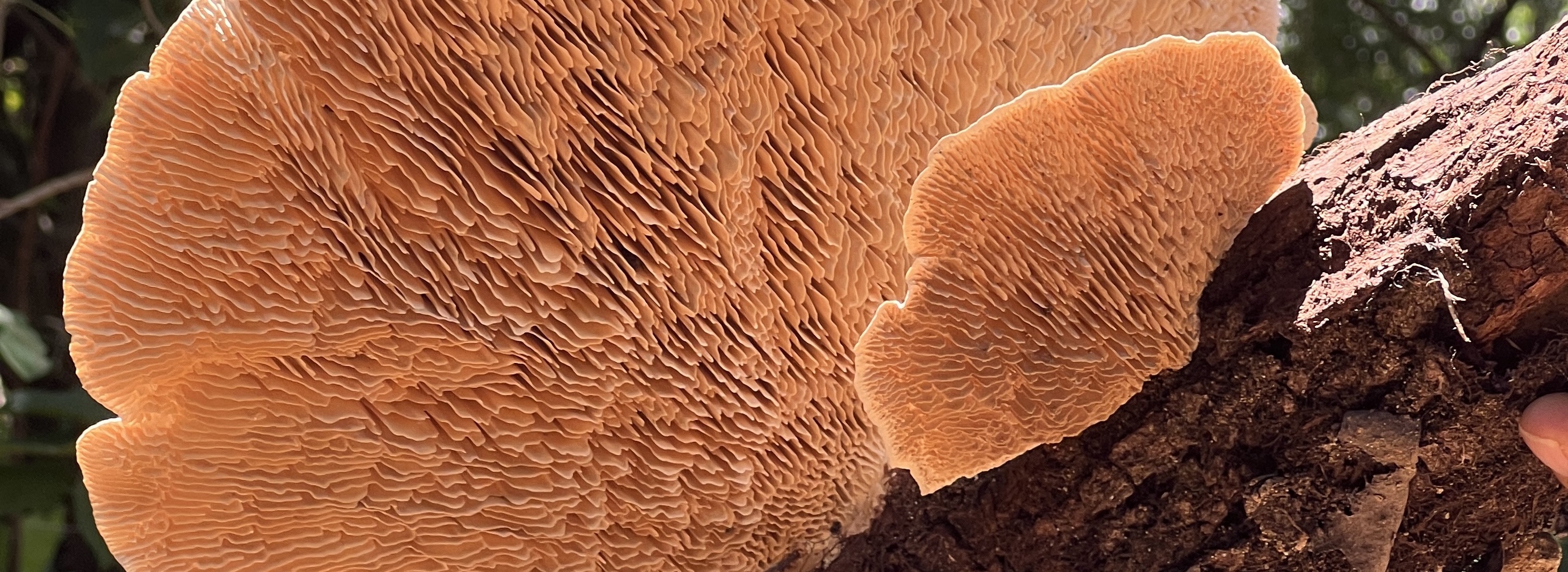
Monteverde Institute: Tropical Ecology and Conservation
Alternative Title
Remediación de Suelos Contaminados por Pesticidas: ¿Alteración de pH por los Hongos Trametes spp.?
Files
Download Full Text (352 KB)
Publication Date
May 2017
Abstract
Pesticide drift from organophosphate insecticides near industrial farms is a big problem in Costa Rica. Excess organophosphates run into waterways and nearby soils, where they bioaccumulate in the foods grown there and in the drinking water, causing health problems to those who consume them. Some mushrooms have bioremedial effects on pesticides. Trametes versicolor, a species of white rot fungi, can break down organophosphates by secreting chemicals that catalyze degradation reactions in soils. To determine if this is a viable option for bioremediation in the tropics, I observed four Trametes spp. fruiting bodies and one substrate without fungus after adding Malathion organophosphate pesticide. I observed pH, organophosphate content, and insect presence and species richness over a period of 11 days to quantify the mushroom’s effects on the pesticide. On the substrates with mushrooms, pH was significantly higher than the substrate without. This is beneficial because high pH promotes hydrolysis of organophosphates, which is the process by which these pesticides are most successfully broken down and removed from the environment. Substrates with mushrooms also had greater insect presence and insect species richness than the substrate without, even after pesticide application. Thus, I hypothesize that Trametes spp. fungi are altering soil pH and creating an environment conducive to organophosphate breakdown, which means they could be viable options for bioremediation.
Resumen
La contaminación por insecticidas organofosforados cerca de fincas industriales es un gran problema en Costa Rica. El exceso de organofosforados corre en los cuerpos de agua y suelos cercanos, donde se bioacumulan en los alimentos producidos y en el agua potable, causando problemas de salud a quienes los consumen. Algunos hongos tienen efectos de bio-remediación sobre pesticidas. Trametes versicolor, una especie de hongo que degrada lignina, puede descomponer organofosfatos secretando sustancias químicas que catalizan reacciones de degradación en suelos. Para determinar si es una opción viable para la bio-remediación en los trópicos, estudié el sustrato bajo cuatro cuerpos fructíferos de Trametes spp., y un sustrato sin hongo, antes y después de añadir el pesticida Malathion organofosfato. Estudié el pH, el contenido de organofosfato y la riqueza de especies de insectos durante un período de 11 días para cuantificar los efectos del hongo sobre el pesticida. En los sustratos con hongos, el pH fue significativamente mayor que en el sustrato sin hongo. Esto es beneficioso porque un pH alto promueve la hidrólisis de los organofosfatos, proceso por el cual estos pesticidas se descomponen con mayor éxito y son eliminados del ambiente. Los sustratos con hongos también presentaron mayor abundancia y riqueza de especies de insectos que el sustrato sin hongos, incluso después de la aplicación de pesticidas. Por lo tanto, propongo la hipótesis que los hongos Trametes spp. están alterando el pH del suelo y creando un ambiente propicio para la descomposición de organofosforados, lo que significa que podrían ser opciones viables para la bio-remediación.
Keywords
Pesticides--Environmental aspects, Mushrooms, EAP Spring 2017
Palabras claves
Pesticidas--Aspectos ambientales, Hongos, EAP Primavera 2017
Extent
11 pages
Geographic Location
Monteverde (Puntarenas, Costa Rica)
Holding Location
Monteverde Institute
Language
English; Spanish
Media Type
Articles
Format
Digital Only
Identifier
M39-00620
Type
Book
Recommended Citation
Warren, Liana, "Remediation of pesticide contaminated soils: alteration of pH by Trametes spp. fungi?, May 2017" (2017). Monteverde Institute: Tropical Ecology and Conservation. 645.
https://digitalcommons.usf.edu/tropical_ecology/645


